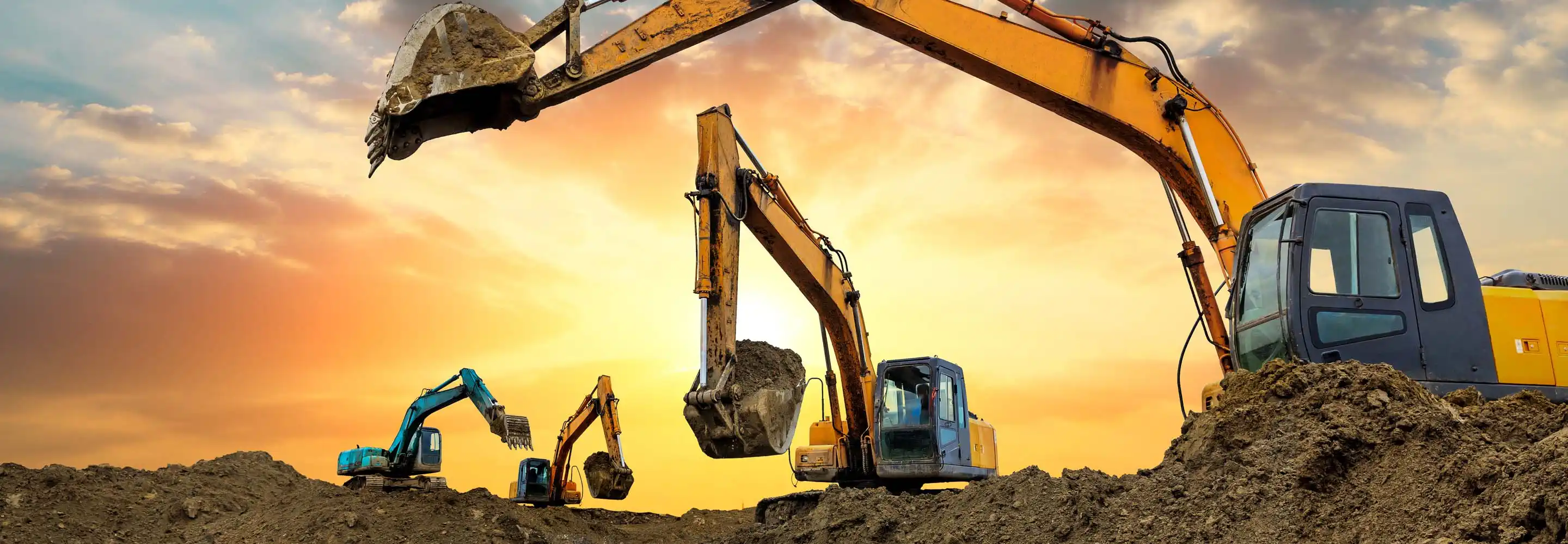Leasing Vs. Acquiring Building Devices: Making the Right Choice for Your Project
When starting a building and construction job, one of the crucial decisions that forecast supervisors and stakeholders face is whether to lease or get construction equipment. Both choices have their benefits and downsides, making the selection a crucial one in the job preparation procedure. The decision depends upon numerous aspects such as price considerations, job duration, devices upkeep, scalability, flexibility, and threat management. Each element plays an important role in determining one of the most ideal course for the job's devices needs. heavy equipment rental. Allow's explore these variables additionally to understand just how they affect the decision-making procedure and ultimately the success of the project.
Price Considerations
When evaluating the economic facet of getting versus renting out building equipment, the upfront prices and long-term costs should be very carefully taken into consideration. Renting out equipment commonly calls for reduced first settlements contrasted to acquiring, making it an appealing choice for short-term jobs or specialists with budget plan restrictions. Leasing eliminates the requirement for big funding expenses and minimizes the economic threat related to devices ownership, such as upkeep and depreciation costs. Nevertheless, over time, consistently leasing equipment can gather greater expenses than buying, especially for extensive projects.
On the various other hand, buying building and construction tools includes greater in advance costs but can lead to long-lasting financial savings, especially for constant individuals or long-lasting jobs. Owning tools provides adaptability, comfort, and the capacity for resale worth once the task is completed. In addition, possessing tools enables for modification and familiarity with details equipment, potentially enhancing effectiveness and efficiency on-site. Inevitably, the decision in between renting and getting building equipment hinges on the project's period, frequency of use, spending plan considerations, and long-term financial goals.
Project Period

Conversely, for long-term jobs or continuous construction work, purchasing equipment might be the a lot more economical alternative. Purchasing tools can bring about cost financial savings in the future, especially if the devices will certainly be frequently utilized. Furthermore, having tools offers a feeling of control over its schedule and enables customization to fit certain task needs.

Tools Upkeep
Given the essential function project duration plays in establishing the most cost-efficient approach between acquiring and renting out building and construction tools, the focus currently changes towards taking a look at the necessary facet of equipment maintenance. Correct upkeep is critical for guaranteeing the optimum performance and longevity of building devices. Renting out tools frequently comes with the advantage of having well-maintained equipment provided by the rental firm. This can ease the problem of upkeep jobs from the task owner or professional, conserving time and initiative. On the other hand, having devices calls for a positive approach to maintenance to stop malfunctions, guarantee safety, and prolong the tools's lifespan. Normal assessments, maintenance, and prompt repairs are needed to keep owned and operated equipment in top functioning condition. Factor in maintenance costs when making a decision in between renting out and buying, as overlooking maintenance can bring mini excavator rental about expensive repair work, downtime, and job hold-ups. Inevitably, a well-kept construction equipment fleet, whether rented or had, is necessary for the reliable and effective completion of building tasks.
Flexibility and Scalability
In the world of construction tools administration, the facet of versatility and scalability holds significant significance for project performance and resource usage. Opting to rent out building equipment gives a high degree of versatility as it allows for the fast modification of tools kinds and quantities based on the evolving requirements of a project.
Renting out construction equipment provides the benefit of easily scaling operations up or down as project demands vary. Service providers can swiftly include or trade equipment to match the task's altering needs without the restraints of owning assets that might become underutilized or outdated.
Risk Management
Effective risk monitoring in building and construction devices operations is paramount to guaranteeing project success and mitigating prospective economic losses. Building projects inherently involve numerous dangers, such as devices failures, crashes, and job hold-ups, which can dramatically impact the task timeline and spending plan. By carefully taking into consideration the dangers connected with owning or renting out building and construction devices, project managers can make enlightened choices to decrease these prospective hazards.
Renting construction equipment can supply a degree of danger reduction by transferring the obligation of repair and maintenance to the rental business. This can minimize the monetary problem on the project owner in situation of unexpected devices failures (scissor lift rental). Furthermore, leasing supplies the adaptability to accessibility customized equipment for particular project stages, lowering the risk of having underutilized machinery
On the various other hand, owning building and construction tools offers a feeling of control over its usage and upkeep. Nonetheless, this additionally indicates bearing the full obligation for fixings, upkeep costs, and depreciation, raising the financial risks related to devices possession. Mindful risk assessment and factor to consider of variables such as task period, equipment use, and maintenance demands are critical in figuring out the most suitable alternative for reliable risk monitoring in building projects.
Conclusion
To conclude, when deciding in between getting and leasing construction equipment, it is necessary to consider cost, task period, devices maintenance, scalability, versatility, and threat administration. Each variable plays a crucial duty in determining one of the most appropriate alternative for the task at hand. By very carefully assessing these aspects, job managers can make an educated choice that lines up with their budget plan, timeline, and overall task objectives.
